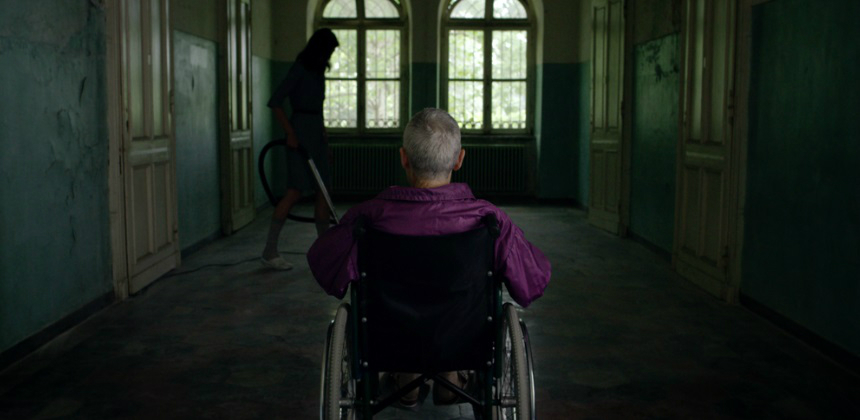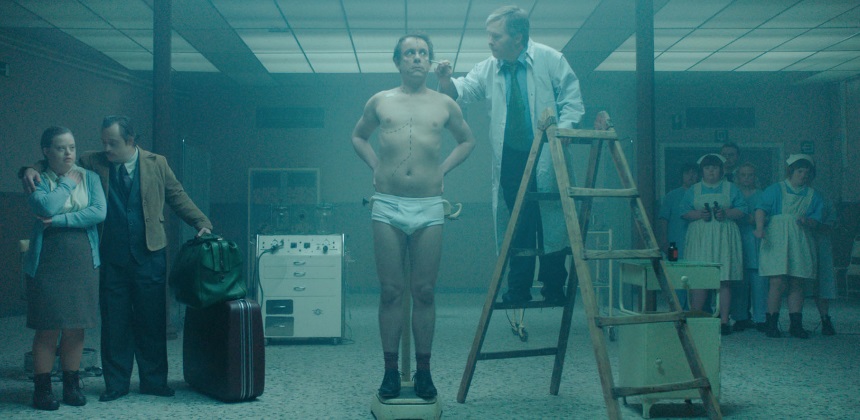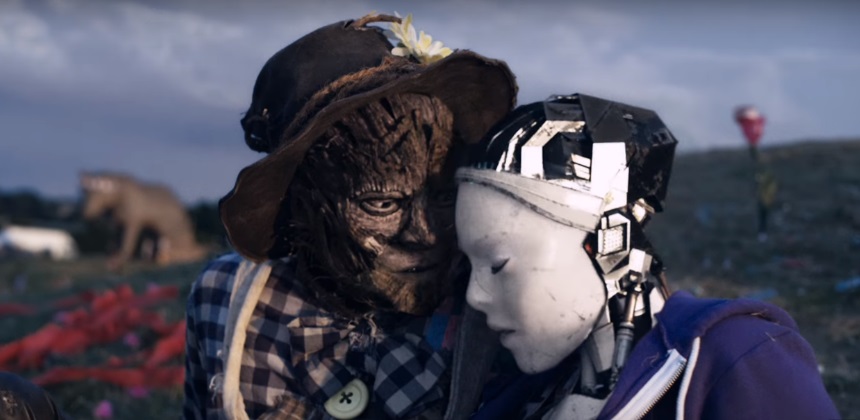Trieste 2017 Review: European Fantastic Shorts (1) Offer an Eclectic Array of Budding Talent

Shorts were in high demand at the Trieste Science + Fiction festival.
Audiences showed up in droves, welcomed the opportunity to attend programming blocks that well exceeded the two hour mark and respectfully applauded each work regardless of whether or not its directors were in attendance. The prestigious setting of the Politeama Rossetti Theatre and a supportive atmosphere combined to create an environment that does right by the format.
This year, the programmers of Science + Fiction went through a submissions pool of over 2000 shorts in order to select what they felt were the most innovative new voices. A total of 51 short films were invited to partake in three competitions: European Fantastic Shorts, Fantastic Shorts and Spazio Corto, with an exclusive focus on Italian cinema.
With the short form often being a discovery platform, we lined up for our fair share, ready to do what Trieste’s slogan instructed: “embrace the future now”.
Read on for ScreenAnarchy’s overall impression of the European Fantastic Shorts (1).
After Willem Grobler’s Hum set viewers off on a sour note with a schmaltzy story of a sound from beyond the grave, Friday’s first chapter of European shorts hit its stride with Alberto Viavattene’s Birthday, a retirement home nightmare designed for the big screen.
From its opening shot of a sports car creeping out of a woodland road viewers are hooked by an assured display of ominousness on the move. Viavattene’s short cuts out most of the extraneous chit-chat in favor of painting a picture of senior citizens taken advantage of by an uncaring nurse who pops their pills and tries to get her hands on their jewelry by any means. An old woman’s birthday gift seems like it could fetch a pretty penny but, as always, looks are deceiving.
Essentially a riff on ‘what goes around comes around’, this offering of style over substance is hampered by a lack of originality but redeemed by Viavattene’s spine-tingling cool. Birthday’s climax leaps off the screen as a spellbinding merger of sight and sound. The infectiously synthy score (composed by Enrico Ascoli) is sure to linger long after the end credits have stopped.

Keeping the top-tier production value of Birthday but enhancing the pretty package with a fresh take on a subject that many wouldn’t dare to broach is Peter Ghesquière’s Downside Up. The Belgian short floored the Italian audience as a case of reversal done right, introducing viewers to a topsy-turvy world in which almost everyone possesses an additional chromosome.
With Down Syndrome being the new normal it is Erik who is singled out since his genetic makeup lacks an extra copy of chromosome 21. He receives special treatment in the form of his own parking space and is applauded when successfully managing a bathroom visit. The short follows his trajectory through life as a man who wants to find a soulmate and purpose in a world he doesn’t quite understand.
Ghesquière never stoops to manipulation and avoids both the pitfalls of sentimentality and insensitivity. Instead, offering a fairy-tale-like reimagining of alterity and disability, Downside Up is touching and funny in equal measure. Ace cinematographer Robrecht Heyvaert (Black, The Ardennes, Revenge) contributes to a distinct look and feel of otherworldly realism that remains consistent throughout. The double round of applause was well-deserved.
Downside Up set the bar at a lofty height that no other short in Friday’s program was able to reach although Kibwe Tavares took an admirable attempt with the conceptual promise of Robot & Scarecrow.
The singular short kicks off with a scarecrow ‘awakening’ to the prospect of attending a nearby music festival. Once there he falls in love with a robot performer but the romance takes an ill-fated turn since her battery is winding down.
The London-based director assembled an impressive roster of talents from various fields, snagging Michael Fassbender’s DMC Film as a production company while also enlisting the support of Daniel Kaluuya. He perfectly captures the buzz and zest for life that emanates from the best festivals but overstates the emotional beats in a climax that veers too close to melodrama. Still, with VFX that are nothing but a treat for the eyes, Robot & Scarecrow merits a look.

Not quite as striking but certainly grabbing the viewer's interest was Jethro Massey's 35mm slice of dystopian gloom and doom, Trauma Industries. The absence of dialogue entrusts storytelling to the shot selection and Massey's work ably unfolds like a visual puzzle, the pieces of which are only doled out one at a time, enlivening proceedings with a sense of mystery.
Set in the factory district of an authoritarian workers' state with more than a whiff of Soviet oppression and Dickensian depression Trauma Industries is a coming-of-age fantasy that acquaints a young boy with the do's and don'ts of a doctrine. Set design is nothing if not impressive with the look of a 1950s factory being particularly on point and worker costumes further enhancing the authenticity of the piece.
Massey wisely leaves it to the viewer to put two and two together even if the short is a bit too keen on adopting crooked camera angles to convey that something is amiss and enforce a sense of discomfort.
TimeLapse and Best Worker closed out the first chapter of the European Fantastic Shorts with middling success. Both sci-fi works ruminate on how technological improvements could enhance mankind's quality of life without being so naïve as to overlook the dangers of blindly pursuing progress.
Aleix Castro’s TimeLapse alleviates the monotony of our punch-clock existence thanks to the implantation of RC-34, a neuronal chip that leads one to perform day-to-day tasks while the mind takes a leave of absence. The director envisions a drab future (with workspaces rendered in desaturated colors) in which, one by one, we willingly come to accept our robotization. The perfectly sinister soundtrack underscores a bleak if familiar dystopia that works best if viewed as a comment on man’s laziness: how we would rather short-circuit our brains, embracing a loss of self, than think up an alternative to a wage-slave existence. Damning indeed.
Castro’s work is an interesting programming choice paired with Cyrill Ngog’s Best Worker, in which an industrious corporate cleaner loses his job to a robot and ends up becoming the machine’s caretaker; a slight but adequately executed exploration of our fears of being rendered obsolete in the age of digitization and automation.
Ivan Radovic’s Eldritch Code deserves an honorable mention as a work that cleverly ushers the world of elder gods into the 21st century with its focus on an IT specialist who tries to prevent the spread of a Cthulhu-virus in his office. Eldritch Code’s brief runtime ensures the novelty doesn’t wear thin even if the slice of Lovecraftian lore skimps on fun by forgoing horror without fully embracing comedy.







